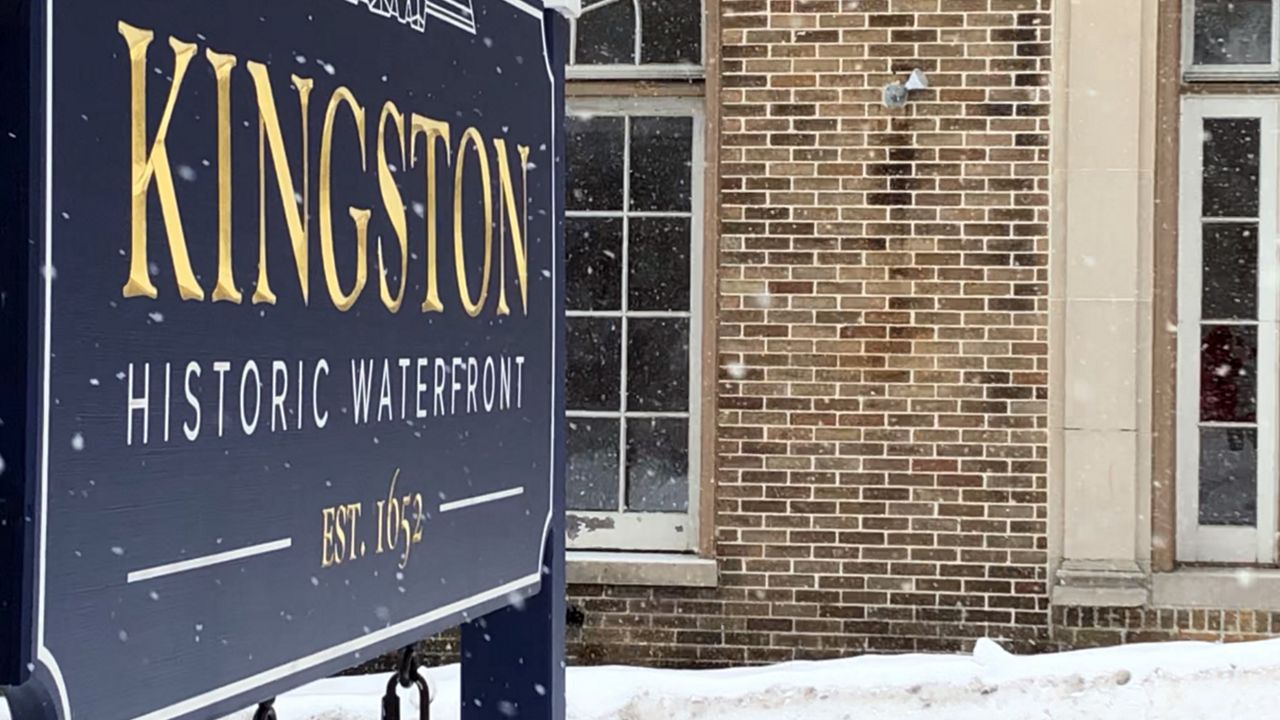Dr. Kahan Sablo had just moved to Kingston when he says he had an encounter with a Kingston police officer.
Sablo said he was running down East Chestnut Street when he stopped to answer an important work email. As he was leaning on a pole, looking down at his phone, Sablo said he was approached by the officer, who was asking about reports of someone staking out cars in the area.
What You Need To Know
- A committee’s recommendations to revamp the Kingston Police Department include bias training, community events, and increased transparency
- Board members said the experience was eye-opening, and could lead to some positive changes
- Recruitment challenges remain; just one of 69 KPD officers is Black
“He said, ‘We got these complaints,’” Sablo recalled. “I said, ‘Are you sure it was me?’ He said ‘Yes.’ Then, I knew things were different.”
Then came what he called a brief, tense moment.
Sablo said he stayed still and made no sudden movements, in order to keep the situation from escalating.
“He said, ‘You keep away from the cars,’ and drove off,” Sablo said.
The encounter happened on September 21. Sablo later discovered a ‘suspicious person’ report that the KPD received one complaint of a Black man in a tank top who was looking into car windows.
Sablo posted a photo of what he said he was wearing that day on Facebook: a black hoodie.
Sablo wonders what might have happened if a teenager were involved in a similar encounter, and whether the situation could escalate into another tragic national headline.
“I get concerned because…are we going to be marching because there’s blood on the street for something that didn’t need to happen?” Sablo said.
Kingston administrators established the Re-envison Public Safety Task Force last year to address possible racial and societal bias.
In his section of a 55-page report with recommendations, task force member Tony Davis said he found that 42% of all arrests in Kingston involved people of color, while people of color comprise just under 16% of the city’s population.
The task force made recommendations to the Common Council to increase community events, improve bias training, and be more transparent about training and discipline.
Task force member Beetle Bailey said while the board made recommendations, she does not consider the board’s work to be game-changing.
“We need a drastic change, something that is a short, sharp shock, to get us out of a rut that is very unhealthy,” Bailey said, just before referencing the nationwide movement to address police brutality against minorities. “We have that chance, and it’s starting to fade.”
Bailey said the board had to work around the police union’s work agreement, which has predetermined procedures for disciplinary action against officers. The board can make suggestions for officer accountability, but it cannot force the department and union to implement them.
“As you try to fix the broken thing, if it’s broken enough, you’re just prolonging more use with something that is ultimately useless and detrimental,” Bailey said. “That’s not just true with policing. It’s with every part of our system, but you have to start somewhere.”
Recruitment of diverse officers was another critical area task force members wanted to address.
Police Chief Egidio Tinti told Spectrum News that out of 69 KPD officers, just one is Black. No one on the task force offered new ways or methods to attract more officers from diverse backgrounds.
Task force support staff member and KPD Lieutenant Michael Bonse said officers recruit at job fairs and the department offers internships.
The 23-year-veteran of the department also pointed out during an interview last week that diverse recruitment is difficult due to salary constraints and the small group of candidates. Generally, fewer people want to be officers, he said.
“That’s really one of the biggest concerns we need to look at in this industry, recruitment and retention, and how do we diversify but at the same time just keep a viable applicant pool,” Bonse said.
Councils and town boards statewide are reviewing revisioning plans, and must submit them to the governor’s office by April 1 to comply with Executive Order 203.
